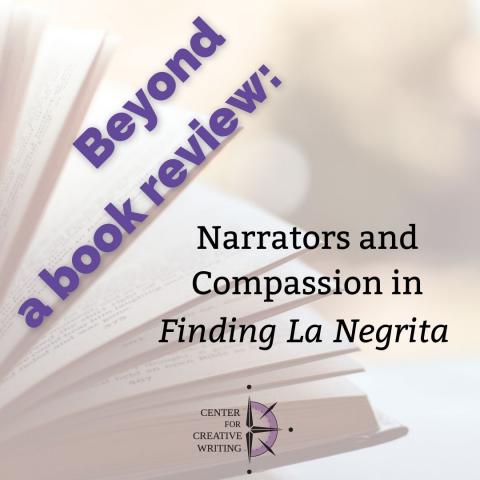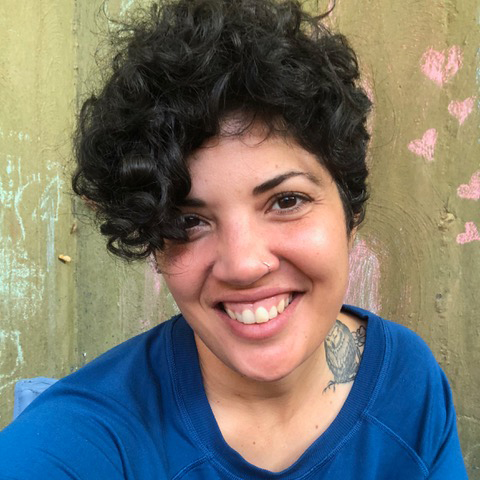
Shawna Ayoub moves "beyond the book review" in not only recommending great books by diverse writers, but highlighting a technique to apply to your own writing.
Finding La Negrita by Natasha Gordon-Chipembere
Natasha Gordon-Chipembere, Ph.D., is an established writer and professor of African Diasporic literature. Her writing focuses on “slavery and the legacy of Afro-descendants in Latin America.” Finding her work was exciting for me because I’ve been prioritizing Afro-Latin writing in my personal reading queue. Finding La Negrita bridged the gap between personal and professional reading, and it was both educating and engaging.
To say I was engrossed by this book is an understatement. I had the privilege of a coastal vacation recently, and I took Gordon-Chipembere’s novel along as a beach read. The experience was a gorgeous one—I was drawn in by Jendayi’s character and story and was compelled to keep reading to find out how the various parts of this novel would connect. There was conflict, action, crisis, and beautiful detail throughout. Finding La Negrita tells a story that could be true, and that got me thinking about the ways we short ourselves and the reader when weaving our own stories.
Multiple perspectives lead to compassion
More specifically, Finding La Negrita is told through multiple voices and narrators, rather than just one. Sharing the point of view of multiple characters serves to positively complicate narratives. What I mean by that is, additional points of view allow the reader to examine and understand conflict from multiple angles. Nuanced perspectives make room for compassion, and compassion is often what is missing in both fictional stories and true retellings of our personal lives.
Do we write to locate compassion? Frequently, yes, especially in the case of memoir. But the standard in crafting essays, books, and poetry is to employ a single narrator. While you don’t need additional narrators to develop compassion in every case, trying to write from another point of view might be helpful. In fact, this is an integral practice in Writing through Trauma to Truth, in a lesson about writing through persona. We examine an alternate point of view to better understand our own.
Why not try it?
A writing exercise
First, make a list of all the characters in the piece you are writing. In a poem about seeing a bird, for example, the list will include the speaker of the poem and the bird. There is also the real or imagined “you” to whom the poem is spoken.
Next, choose a character whose point of view you have not already explored and free-write for 15 minutes. Tell their experience in their voice. Don’t be afraid to get silly in your exploration. This is an exercise and does not need to be included in your final writing.
Finally, make note of the differences between the characters whose points of view you have explored. What complications did you discover? Was compassion developed? How? Will you include anything you discovered in your piece?
Note: This is an especially powerful exercise when it comes to memoir. Exploring a sibling or parental point of view can result in uncertainty and confusion just as easily as it can be an act that brings resolution. Further, writing from a perspective that isn’t our own might highlight some of our own biases and privileges, or raise questions that, in exploring or answering, might change how we wish to tell our stories. Be sure to check in with yourself on paper about how this writing made you feel.
If you are interested in how multiple narrators can serve a story, I highly recommend Finding La Negrita as your next read, beach or not! In addition to being a potential source of instruction, this novel offers a beautifully-woven tale, one that compels from the first page and ends in a way that satisfies and leaves readers better.
Will you try this exercise? Read this book? Share with us in the comments.
Buy Finding La Negrita at Bookshop.org (and support independent bookstores across the U.S.)
Related reading
Beyond a Book Review: Research as Connection in Through the Banks of the Red Cedar
Beyond a Book Review: Intuition in River Woman, River Demon
Beyond a Book Review: Timeline(s) in Becoming AppalAsian
Beyond a Book Review: Unwieldy Creatures and retelling our stories
Beyond a Book Review: Containers as safe spaces in Nonwhite and Woman
Beyond a Book Review: Footnotes in Belly to the Brutal
Want to receive tips and inspiration like this in your inbox every Sunday morning? Join our email list community! You will receive weekly advice, a year’s worth of weekly writing prompts as a FREE download, and be eligible to participate in our monthly photo prompt contest for a chance to share an original piece of writing with our community of more than 2,500 writers.
